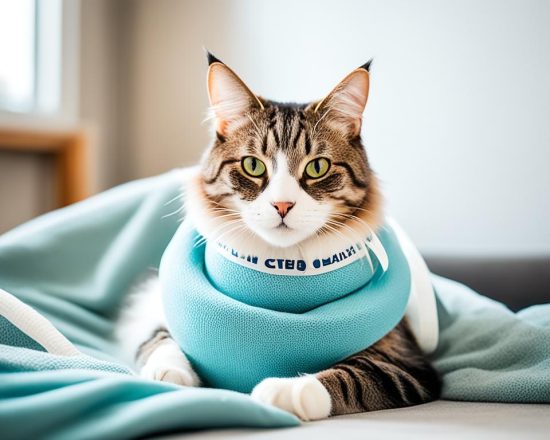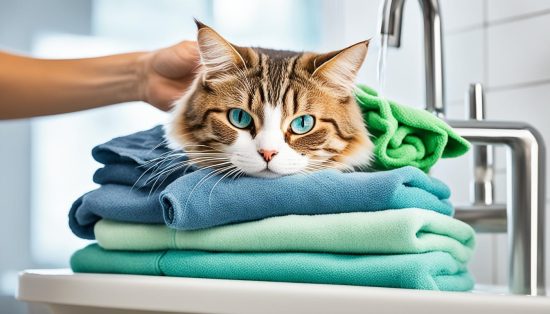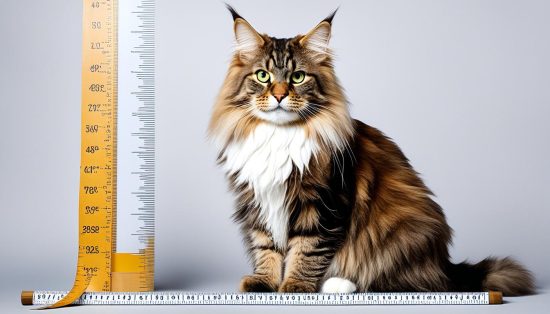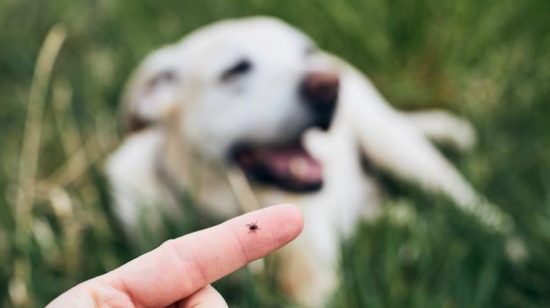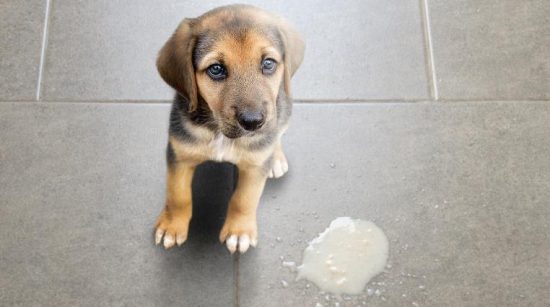Why Is My Cat Sneezing? Common Causes & Solutions
Explore reasons why your cat is sneezing and learn effective home remedies and potential need for medication to address your feline’s cold symptoms.
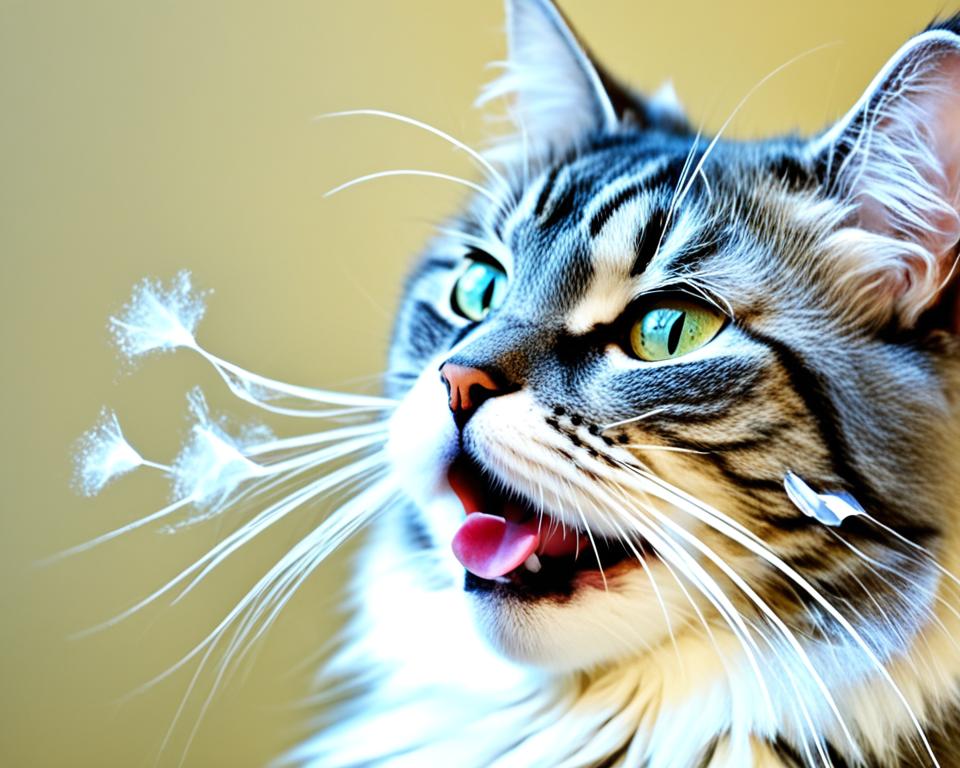
Is your furry friend sneezing more often than usual? While occasional sneezing is normal for cats, frequent or persistent sneezing may be a cause for concern. Understanding why your cat is sneezing and the factors that contribute to it is essential to ensure their overall well-being. So, why is your cat sneezing, and what can you do about it?
In this blog, we will explore why is my cat sneezing and provide solutions to help alleviate this issue. From infections and allergies to environmental irritants, we’ll uncover the underlying factors that may be triggering your cat’s sneezing episodes. Additionally, we’ll discuss when sneezing may signal a more serious health problem and its link to cat respiratory infections.
Whether you’re looking for home remedies or professional care options, we’ve got you covered. Providing the appropriate care and understanding the mechanisms behind your cat’s sneezing can make all the difference in their comfort and well-being. So, let’s dive in and find out why your cat is sneezing and what you can do about it!
Understanding the Sneezing Reflex in Cats
Cats, like humans, have a reflexive action known as sneezing that helps expel irritants from their nasal passages. Just as we sneeze in response to triggers such as dust, pollen, or smoke, cats also experience sneezing when exposed to similar allergens and irritants. This feline sneezing reflex is a natural defense mechanism that helps keep their nasal passages clear and free from potential harm.
What Triggers a Cat’s Sneeze?
Various factors can trigger a cat’s sneeze, ranging from environmental allergens to particles in the air they breathe. Common triggers of cat sneezing include:
- Dust
- Pollen
- Smoke
- Cleaning products
- Perfumes
- Mold
When cats encounter these triggers, their bodies respond by activating the sneezing reflex to remove the irritants from their nasal passages. Identifying and minimizing your cat’s exposure to these triggers is important to help reduce sneezing episodes.
Why Is My Cat Sneezing?
When trying to identify why your cat is sneezing, it’s important to consider common infections that can cause sneezing symptoms. Viral infections, such as feline herpes virus and feline calicivirus, are frequently associated with sneezing in cats. Bacterial and fungal infections can also be potential culprits. Additionally, cat allergies or exposure to irritants like cigarette smoke, perfume, or cleaning agents can trigger sneezing episodes. Understanding these underlying issues can help you determine the appropriate course of action to address your cat’s sneezing.
Common Infections That Cause Sneezing
Cats can experience sneezing as a result of various infections. Two common viral infections that cause sneezing in cats are feline herpes virus and feline calicivirus. These viruses can spread through direct contact with an infected cat or through exposure to contaminated objects. Sneezing is a typical symptom of these viral infections, along with other signs such as nasal discharge, fever, and mouth ulcers. If you suspect that your cat has a viral infection, it’s important to seek veterinary care for proper diagnosis and treatment.
Could It Be Cat Allergies or Irritants?
In addition to infections, cat allergies and exposure to irritants can also cause sneezing in cats. Just like humans, cats can be allergic to certain substances, such as pollen, dust mites, or certain foods. When cats come into contact with these allergens, it can trigger an allergic reaction, including sneezing. Furthermore, exposure to irritants like cigarette smoke, strong perfumes, or cleaning agents can also irritate a cat’s respiratory system and lead to sneezing. If you suspect that your cat’s sneezing is due to allergies or irritants, it’s important to consult with your veterinarian to identify and manage the triggers effectively.
When Does Sneezing Signal a Health Problem?
While sneezing can be a normal occurrence, it’s essential to be aware of when sneezing in cats may signal a more serious health problem. If your cat’s sneezing is persistent and is accompanied by other symptoms such as nasal discharge, fever, coughing, or lethargy, it may indicate an underlying health issue that requires veterinary attention.
Recognizing the signs that your cat’s sneezing is more than just a mild irritation can help you ensure timely and appropriate medical care for your feline companion. Pay attention to any changes in their behavior, appetite, or overall well-being.
If you notice any of the following signs along with your cat’s sneezing, it is recommended to seek veterinary care:
- Nasal discharge: A runny or discolored discharge from the nose can indicate an infection or other respiratory issue.
- Fever: An elevated body temperature can be a sign of an underlying infection or inflammation.
- Coughing: Persistent coughing, especially if accompanied by sneezing, may suggest a respiratory infection or airway obstruction.
- Lethargy: If your cat is unusually tired, lacks energy, or shows a reduced interest in their usual activities, it could be a sign of an underlying health problem.
The Link Between Sneezing and Cat Respiratory Infections
Respiratory infections are a common cause of cat sneezing. These infections can be caused by viral, bacterial, or fungal pathogens, leading to persistent sneezing and discomfort for your feline companion. Understanding the link between sneezing and respiratory infections can help you take appropriate measures to prevent and manage these conditions.
Viral Infections and Sneezing
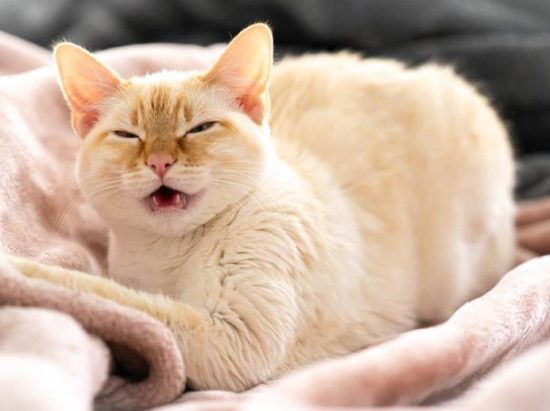
Viral infections, such as feline herpes virus and feline calicivirus, are known to cause sneezing symptoms in cats. These infections are highly contagious and can easily spread among cats in close quarters, such as shelters or multi-cat households. Sneezing is often accompanied by other respiratory symptoms, such as nasal discharge or congestion. If your cat is exhibiting signs of a viral infection, it’s important to consult with your veterinarian for proper diagnosis and treatment.
Bacterial and Fungal Causes for Concern
In addition to viral infections, bacterial and fungal infections can also contribute to sneezing in cats. Bacterial infections, such as Bordetella bronchiectasis or Chlamydophila felis, can cause upper respiratory symptoms, including sneezing. Fungal infections, such as cryptococcosis or aspergillosis, can also affect the respiratory system and lead to sneezing episodes. These infections often require veterinary intervention, including specific medications or antifungal treatments, to address the underlying cause and alleviate sneezing symptoms.
Comparison of Viral, Bacterial, and Fungal Causes of Cat Sneezing
| Viral Infections | Bacterial Infections | Fungal Infections | |
|---|---|---|---|
| Symptoms | Sneezing, nasal discharge, congestion, fever | Sneezing, coughing, nasal discharge, fever | Sneezing, nasal discharge, respiratory distress |
| Contagious | Highly contagious | Generally less contagious | Not contagious |
| Treatment | Symptomatic treatment, antiviral medications | Antibiotics, supportive care | Antifungal medications, specialized treatment |
This table provides a comparison of viral, bacterial, and fungal causes of cat sneezing. While viral infections are highly contagious and often require antiviral medications, bacterial infections can be treated with antibiotics and supportive care. Fungal infections require specialized treatment with antifungal medications. If your cat is experiencing persistent sneezing, it’s important to consult with your veterinarian to determine the underlying cause and appropriate treatment.
Uncovering Other Causes: From Allergens to Dental Disease
While infections are common causes of cat sneezing, there are other factors to consider as well. Inhaled allergens, such as pollen, dust, or smoke, can lead to sneezing in cats. Identifying and reducing exposure to these allergens can help alleviate your cat’s sneezing symptoms. Additionally, dental disease can contribute to nasal issues in cats, leading to sneezing. Maintaining good dental hygiene and addressing any dental issues can help prevent and manage sneezing related to dental disease.
The Impact of Inhaled Allergens
When cats inhale allergens like pollen, dust, or smoke, it can trigger sneezing. Cats are known to be sensitive to these airborne particles, leading to irritation in their nasal passages. Identifying the specific allergens that affect your cat and reducing their exposure can help alleviate their sneezing symptoms. Keeping your cat’s living environment clean and dust-free, using air purifiers, and avoiding smoking indoors can help minimize their contact with these allergens.
How Dental Disease Can Cause Nasal Issues
Dental disease can be another underlying cause of cat sneezing. When a cat has dental issues like gum disease or tooth decay, the bacteria present in the mouth can travel to the nasal passages, leading to inflammation and sneezing. Regular dental cleanings and good dental hygiene can help prevent dental disease in cats and reduce the risk of nasal issues and sneezing. If you notice any signs of dental problems in your cat, such as bad breath, difficulty eating, or swollen gums, it’s important to consult with your veterinarian for proper treatment.
How Serious Is a Cat Cold?
In cats, colds are commonly referred to as feline upper respiratory illnesses. These illnesses can cause sneezing, nasal discharge, coughing, fever, and other symptoms. Cat colds are often the result of viral infections, such as feline herpes virus and calicivirus. While a cat cold can be uncomfortable for your feline companion, the good news is that they usually resolve on their own with supportive care.
Understanding Feline Upper Respiratory Illness
Feline upper respiratory illnesses, including cat colds, are caused by contagious viral infections that affect the respiratory system. These infections can be transmitted through direct contact with an infected cat or through exposure to contaminated objects or environments. Common symptoms of feline upper respiratory illnesses include:
- Sneezing
- Nasal discharge
- Coughing
- Fever
- Conjunctivitis (inflammation of the eyes)
Do Cat Colds Go Away on Their Own?
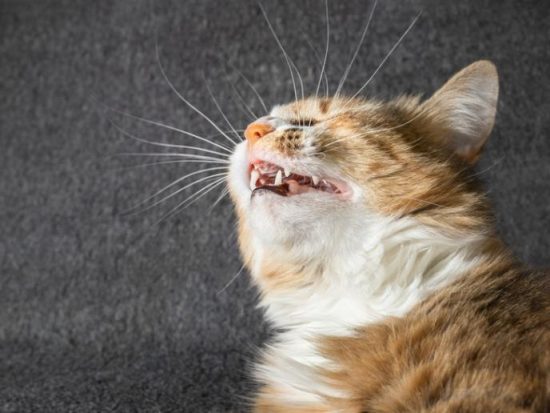
Yes, cat colds generally go away on their own with time and supportive care. Just like in humans, the immune system of cats plays a crucial role in fighting off viral infections. While there is no specific cure for a cat cold, there are steps you can take to help alleviate your cat’s symptoms and support their recovery:
- Provide a comfortable and warm environment for your cat.
- Ensure they have access to fresh water and encourage them to stay hydrated.
- Offer nutrient-rich foods that are easy for your cat to eat.
- Use a saline solution or a veterinarian-approved nasal decongestant to clear your cat’s nasal passages.
- Avoid exposing your cat to other cats or stressful environments that may worsen their symptoms.
It’s important to note that if your cat’s symptoms worsen or persist for an extended period, it’s advisable to seek veterinary care. In some cases, cats with weakened immune systems or underlying health conditions may require additional medical intervention to recover from a cold.
Home Remedies: How to Cure Your Cat’s Cold at Home
If your cat has a cold and is experiencing sneezing, there are certain home remedies that may help alleviate their symptoms. Providing a warm and humid environment, offering supportive care such as proper hydration and nutrition, and using saline solutions to clear nasal passages are some options to consider. However, it’s important to consult with your veterinarian before attempting any home remedies to ensure they are safe and appropriate for your cat.
| Home Remedies | Description |
|---|---|
| 1. Warm and humid environment | Provide a comfortable and warm space for your cat to rest. You can use a humidifier to add moisture to the air, which can help with nasal congestion. |
| 2. Proper hydration and nutrition | Ensure that your cat is well-hydrated by encouraging them to drink water. Offer wet food with high moisture content to help keep them hydrated. Consult with your veterinarian for recommended diet modifications. |
| 3. Saline solutions for nasal passages | Using saline solutions or nasal drops specifically formulated for cats can help clear their nasal passages and relieve congestion. Follow the instructions provided and be gentle when administering. |
Professional Care: What Medicine to Give a Cat for a Cold?
Antibiotics and Their Role in Treatment
In cases where your cat’s cold and sneezing symptoms persist or worsen, seeking professional care may be necessary. Your veterinarian may recommend the use of antibiotics to treat any underlying infections that may be causing the sneezing. Antibiotics can help fight off bacterial infections and support your cat’s recovery.
Additional Treatment Options and Considerations
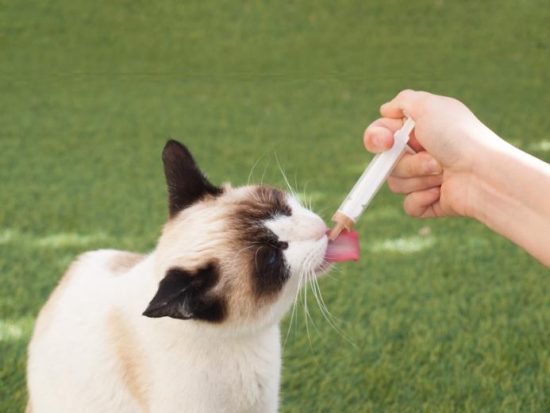
Alongside antibiotics, your veterinarian may also suggest additional treatment options to alleviate your cat’s cold and sneezing symptoms. These may include antiviral medications to target viral infections or supportive care measures to help your cat feel more comfortable during the recovery process.
It’s crucial to follow your veterinarian’s guidance and administer any prescribed medications as directed. Completing the full course of antibiotics is essential to ensure the infection is fully eliminated and prevent the development of antibiotic-resistant bacteria. Additionally, providing a warm and quiet environment for your cat and ensuring they stay well-hydrated can aid in their recovery.
Managing Feline Allergies and Environmental Irritants
If your cat’s sneezing is due to allergies or exposure to environmental irritants, there are steps you can take to manage these conditions. By identifying and avoiding allergens or irritants, you can help reduce your cat’s exposure to triggers. It’s important to provide proper ventilation in your home and regularly clean your cat’s living environment to minimize the presence of allergens.
One strategy for managing cat allergies is to consult with your veterinarian, who may recommend allergy testing to identify specific triggers. This can help you better understand what substances are causing your cat’s allergic reactions. Based on the test results, your veterinarian may prescribe appropriate treatment options, such as antihistamines or immunotherapy, to help manage your cat’s allergies and alleviate sneezing symptoms.
Understanding the Role of Vaccinations and Preventative Care
Vaccinations are a vital component of proactive healthcare for cats, helping to prevent respiratory infections and other conditions that can lead to sneezing. Regular vaccinations, as your veterinarian recommends, can provide essential protection against common viral infections that contribute to sneezing, such as feline herpes virus and calicivirus. These diseases are highly contagious and can easily spread among cats, particularly in multi-cat households or shelter environments.
In addition to vaccinations, maintaining good preventative care practices is crucial in minimizing the risk of sneezing and other health issues in your cat. Regular veterinary check-ups allow for early detection and treatment of any underlying health conditions that may contribute to sneezing. Your veterinarian can provide guidance on appropriate nutrition, preventive treatments for parasites, and dental hygiene to keep your cat healthy and reduce the likelihood of sneezing episodes.
Creating a clean and safe living environment for your cat is also important in preventing respiratory issues. Regularly cleaning their living space, ensuring proper ventilation, and eliminating potential irritants such as cigarette smoke, chemicals, or dust can significantly reduce the risk of sneezing and respiratory infections.
FAQs on why is my cat sneezing
Are occasional sneezes normal in cats?
Yes, occasional sneezing is normal in cats, especially when they are excited or exposed to movement. However, persistent or frequent sneezing may indicate an underlying issue that requires further investigation.
What are some common infections that can cause sneezing in cats?
Cats can experience sneezing due to viral infections like feline herpes virus and feline calicivirus, as well as bacterial and fungal infections.
Could my cat’s sneezing be due to allergies or exposure to irritants?
Yes, cats can develop allergies, just like humans. Inhaled allergens like pollen or dust, as well as exposure to irritants such as smoke or cleaning agents, can trigger sneezing in cats.
When does sneezing in cats signal a health problem?
If your cat’s sneezing is persistent and accompanied by other symptoms like nasal discharge, fever, coughing, or lethargy, it may indicate an underlying health issue that requires veterinary attention.
How are respiratory infections linked to cat sneezing?
Sneezing is one of the common symptoms of respiratory infections in cats. Viral infections like feline herpes virus and feline calicivirus can cause sneezing, as well as bacterial and fungal infections.
How serious are cat colds? Do they go away on their own?
Cat colds, also known as feline upper respiratory illnesses, are common and usually resolve on their own with supportive care. However, if symptoms persist or worsen, veterinary attention may be necessary.
How can I cure my cat’s cold at home?
Providing a warm and humid environment, proper hydration and nutrition, and using saline solutions to clear nasal passages are some home remedies that may help alleviate your cat’s cold symptoms. However, it’s essential to consult with your veterinarian before attempting any home remedies.
What medicine should I give my cat for a cold?
The appropriate medication for your cat’s cold will depend on the underlying cause. Your veterinarian may prescribe antibiotics or any cat pill to treat bacterial infections or antiviral medications for viral infections.
How can I manage my cat’s allergies and reduce exposure to environmental irritants?
Identifying and avoiding allergens or irritants, improving ventilation in your home, and regularly cleaning your cat’s living environment can help reduce their exposure to triggers. Your veterinarian may also recommend allergy testing and appropriate treatment options.
How can I protect my indoor cat from getting a cold?
Regular cleaning, proper ventilation, and minimizing exposure to potential irritants can help protect your indoor cat from getting a cold. Avoiding contact with sick cats or infected objects can also help reduce the risk.
How important are vaccinations and preventative care in preventing cat sneezing?
Vaccinations play a crucial role in preventing respiratory infections and other conditions that can lead to cat sneezing. Regular veterinary check-ups, proper nutrition, and a clean living environment also contribute to overall preventative care.

